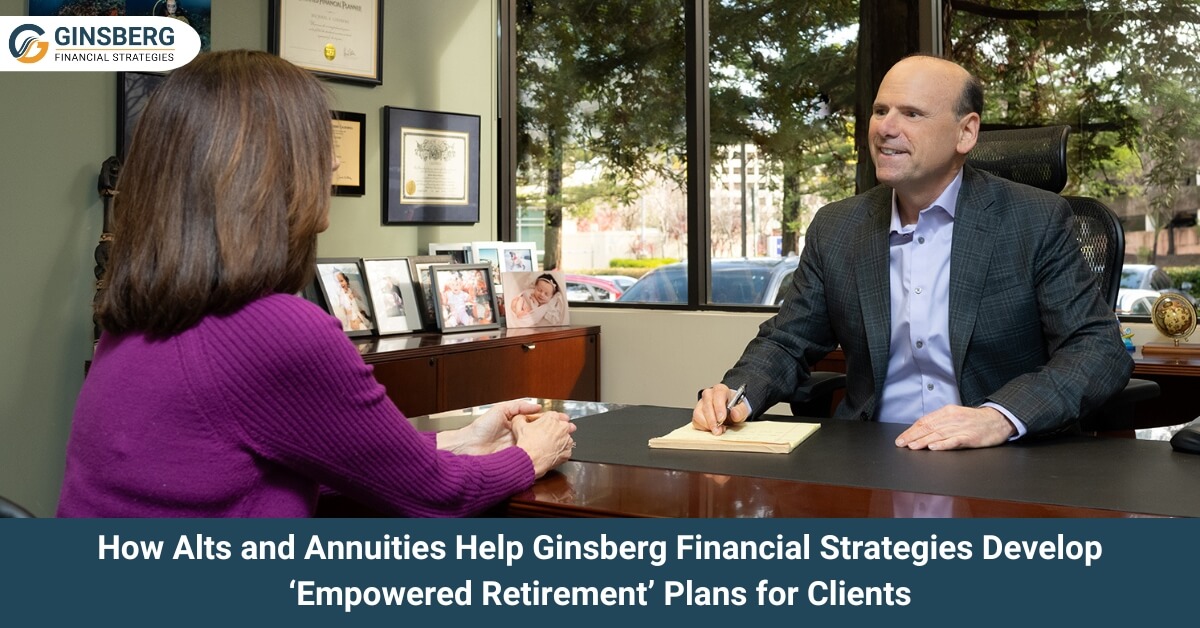How Alts and Annuities Help Ginsberg Financial Strategies Develop ‘Empowered Retirement’ Plans for Clients

Learn more about Ginsberg Financial Strategies and consider joining them to become a Blue Vault member today!
Johnathan Rickman | Blue Vault
After more than a decade of working with business owners in the early 2000s as an attorney and commercial lending executive, Michael Ginsberg decided to become a certified financial planner upon discovering that so few of his former clients had retirement plans.
So, in 2012, Ginsberg founded Ginsberg Financial Strategies, a Walnut Creek, CA-based RIA that provides income-focused retirement plans and other services for accredited investors. The firm has two other full-time staffers, and Ginsberg plans to add a third team member — a junior advisor — by the end of the year. “I figure I’m too young to retire myself and to grow the business, I have to stop doing all of the below-the-line activities,” he says.
The firm manages roughly $75 million in assets, including fixed-index annuities and other insurance products, which its founder incorporates into the practice to help generate income and long-term care benefits for retirement-focused investors.
Reinvesting Business Profits
Michael Ginsberg says he saw the same pattern play out in his previous roles working with business owners: They would invest most of their profits back into the business — their real estate assets in particular, but also their employees — and then retire only when they were ready to sell the business.
“They were essentially kicking the can down the road for a pension plan,” he says. “When I got into financial advising, I realized that that’s what business owners were missing, and traditional pension plans don’t really exist anymore unless you’re a government employee.”
To replicate and create private pension-like income streams for clients, Ginsberg initially turned to overfunded life insurance and fixed-index annuities while also using investments to manage volatility. Not a fan of the stock market, he embraced private real estate and the residual income generated from rent — leveraging his background in law and real estate to help guide him through the due diligence process and conversations with fund managers.
As he transitioned from a mortgage company to financial services, Ginsberg discovered alternative investments. “Back then, the non-publicly traded REITs were not the world’s best option, but they turned on a light bulb in my head,” he says. “These main street vehicles can offer private real estate without actually having to own the real estate. We can also find credit solutions and other interesting products to help manage volatility and allow your average Joe and Jane to use what wealthy people, endowments, and pensions use.”
Click here to read the full article.





